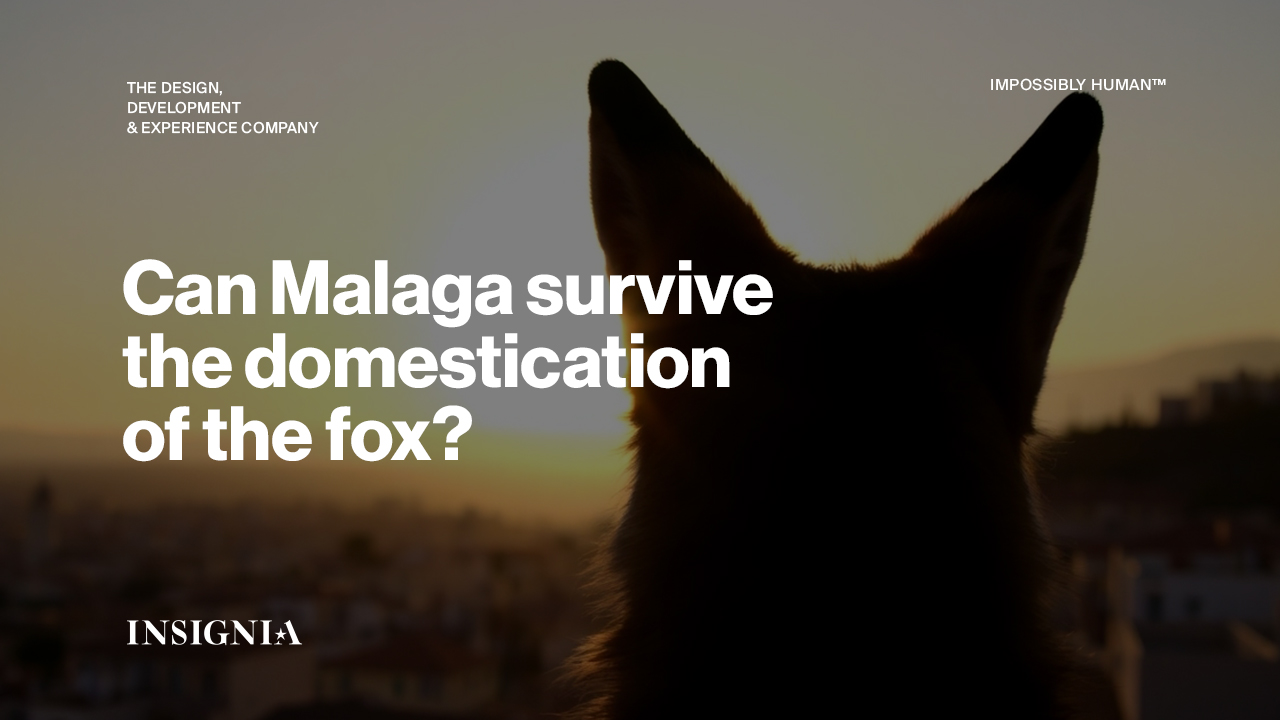Lyudmila Trut, the pioneering Soviet-era geneticist, passed away last month at the venerable age of 90, leaving behind a legacy as curious and compelling as the foxes she transformed. Her life’s work centred on an audacious experiment: could wild foxes, those sly, untamed creatures of folklore and forest, be selectively bred into something as docile and devoted as dogs?1 Trut’s answer, painstakingly unravelled across decades in the biting Siberian cold, was a resounding yes.
By choosing the tamest foxes and breeding them over successive generations, she achieved what humans had taken millennia to do with wolves. Her foxes, once as elusive and fiery as their reputation suggested, became companions as affectionate and people-focused as any Labrador. Their floppy ears, piebald coats, and wagging tails were the physical manifestations of what Trut called “domestication syndrome”: proof that the human hand can reshape even the wildest of natures.
But what does this have to do with Malaga, that sun-drenched Andalusian jewel famous for its wine, art, and carefree lifestyle?
Quite a lot, as it turns out.
The city council’s recent decision to ban new short-term rentals in 43 neighbourhoods draws a fascinating parallel to Trut’s experiment. Like her foxes, the proliferation of short-term rentals has undergone an accelerated transformation, fundamentally altering the character of the city in a matter of years. What was once an authentic local culture, vibrant with the unpredictable energy of daily life, now risks becoming a curated experience tailored for tourists and digital nomads.2
Malaga, like so many destinations, has seen the rise of short-term rentals as both a blessing and a curse. On the one hand, these properties have brought economic opportunities and new energy to the city. On the other, they’ve priced many locals out of their own neighbourhoods, driven up the cost of living, and eroded all sense of community. In some areas, 65% of tourist accommodation is now short-term rentals.
We’re not here to wag fingers or pass judgement. Transformation, in itself, is neither inherently good nor bad. What is undeniable, however, is the breakneck speed at which change is occurring in today’s world. So rapid, in fact, that we seldom take the time to pause and reflect on the long-term consequences of the shifts we so readily adopt.
Perhaps the lesson lies not in condemnation but in caution. What Trut’s foxes, and Malaga’s short-term rental policies, teach us is that change needs balance. If cities don’t regulate new tourism paradigms like short-term rentals thoughtfully and deliberately, they may find their DNA irrevocably altered.
Malaga’s move to ban new short-term rentals is, arguably, a step towards finding this balance. It’s an attempt to slow the tide, to preserve the authentic characteristics that make the city unique while still allowing travellers to revel in its delights. Whether this approach succeeds or not remains to be seen, but it’s a reminder of the delicate dance between identity and innovation.
Let’s take a moment, then, to honour both Lyudmila Trut and Malaga’s recent decision. Both remind us that, while we may have the power to transform, we also bear the responsibility to ask: at what cost?
Insignia Worldwide crafts new realities at the intersections of strategy and storytelling, by challenging what is humanly possible and creating what is Impossibly Human.TM
1 The Times, November 19, 2024
2 Reuters, October 24, 2024
